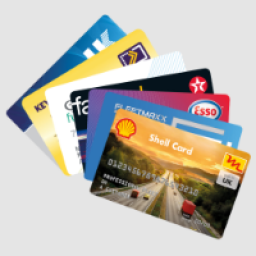Your credit score can affect all sorts of things – from
getting a mobile phone contract, personal loan, and even buying a car. Here, experts
at finding cheap car
insurance, NimbleFins, explain how credit scores work, how they can affect
what you buy on credit, and importantly, what you can do to improve your score.
What is a credit score?
A credit score is a rating that shows lenders how reliable
you are at paying back what you owe.
In the UK, there are three main credit reference agencies (CRAs)
which hold information about our repayment habits. CRAs also hold other
information related to your financial history, for example, whether you’ve had
any county court judgements (CCJs) or declared bankruptcy.
The three credit reference agencies are:
·Equifax
·Experian
·TransUnion
Lenders can check your score with any one of these CRAs when
you apply for any sort of credit, whether that’s hire purchase on a washing
machine or even a mortgage.
What credit score do I need to buy a car?
To make matters confusing, there’s no single ‘good’ score.
Each of the three credit reference agencies score in a different way so your
rating can be different with each CRA. The information about you that’s visible
to the lender will depend on which agency they use.
How can a poor credit score affect buying a car?
If you’re applying for car finance, your score can affect
the type of finance deal you get.
Having a good or high credit score means you’ll be offered
finance deals with the best interest rates and repayment options.
On the other hand, a poor credit score suggests that you may
have struggled to repay loans in the past or have a history of financial
instability (for example if you’ve had a recent CCJ or applied for insolvency).
For lenders, a poor credit rating indicates you could
default or miss repayments which can make lenders reluctant to extend credit to
you. As a result, any car finance deal you are offered, is likely to come with high
interest rates and less preferential terms.
Bear in mind that your credit score only affects buying a
car if you want to take out a car finance plan. If you’re a cash buyer, the
lender won’t need to check your credit score.
Your credit score can even affect the cost of car insurance
for your new car, and even other types of insurance such as home insurance or motorcycle
insurance. For example, a policyholder requesting to pay their insurance on
a monthly basis may be subject to a credit check. A weaker credit score can
mean a higher interest rate, meaning higher monthly insurance payments.
Can I check my credit score?
It’s easy to check your credit score and even better, it’s
free to do so.
If you’re trying to buy a car with a finance plan and you
know which CRA the lender uses, you can check your score with that specific
agency. Otherwise, you can check your rating with all three.
·Experian – you can check your score for
free on the Experian
website, if you want to read your credit report (which gives you tailored
advice on how to improve your score as well as other features), you’ll have to
sign up to a paid account. Currently, Experian is offering a free 30-day trial
of this particular service.
·Equifax – check your score and access
your credit report at ClearScore
·TransUnion – access your credit report at
Credit Karma
How can I improve my credit score?
If your credit score could do with improving, the good news
is that there are several ways to do this but depending on your rating, it can
take time.
How to improve your credit score in the short-term
One of the quickest ways to improve your score is to check
it’s right in the first place. That means making sure all the details set out
by each CRA are correct, including your name and address. If you spot any
mistakes, for instance, spelling mistakes or inaccurate dates, you should let
the CRA know straightaway.
If you’re not on the electoral roll already, adding yourself
to this can also improve your credit rating. It’s an easy thing to do online at
GOV.UK but it helps lenders check
that you are who you say you are.
You should also see if you have any financial links to other
people – including joint bank accounts or credit cards. If you’re financially
tied and the other person has a poor credit rating, it can impact yours too.
How to improve your credit score in the medium-term
If you’ve got outstanding credit card or loan balances, it’s
important to make repayments on time. It’s the same for bills too, so keep an
eye on things like your utility and broadband bills.
How to improve your credit score in the long-term
Improving your credit score is all about consistency and
building a sound credit history. If you have a mobile phone contract, building
up good credit could be as simple as making sure you pay your bill on time.
It’s sounds obvious but it shows lenders that you can manage your income and
expenses.
You can also take out what’s called a credit builder card.
These credit cards are specifically designed for anyone with a poor credit
rating or no rating at all (for example, if you’ve never applied for credit
before). Credit builder cards typically come with low spend limits and high
interest rates, but used wisely, they can help you develop a good score.
It's also important to avoid constantly applying for credit
if you’ve already been turned down. Frequent and multiple applications act as a
red flag to many lenders and can damage your score even further.
It can be disheartening if you’ve been refused car financing
because of a poor credit score. But in time and with some careful management,
it really is possible to improve your rating.
 Pierce Business Advisory & Accountancy Group
Pierce Business Advisory & Accountancy Group









